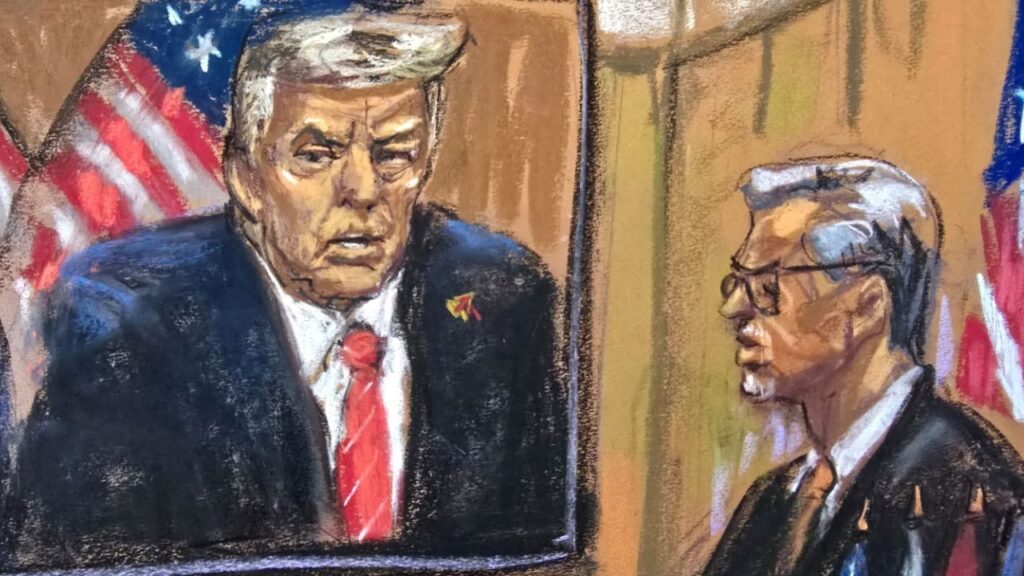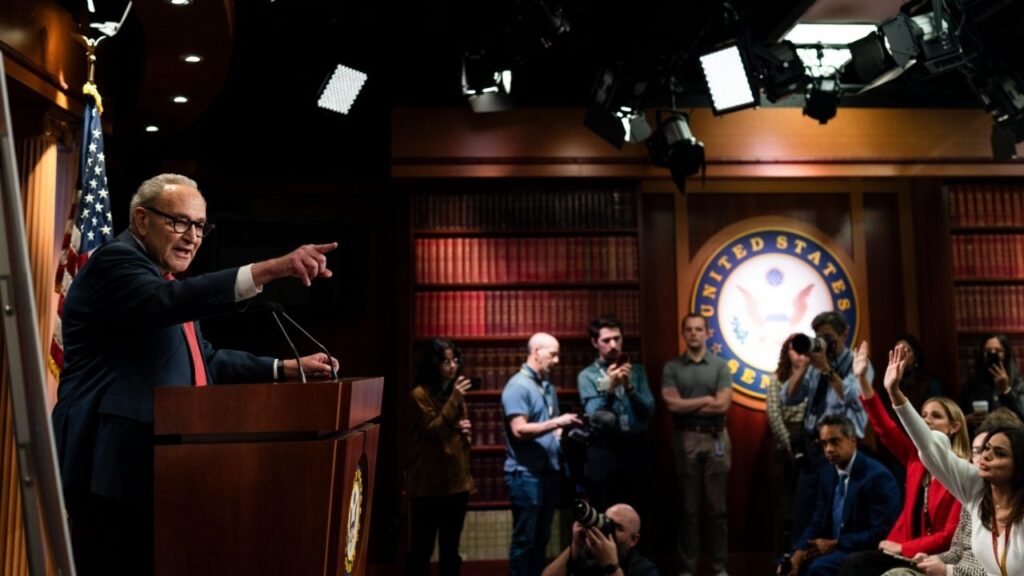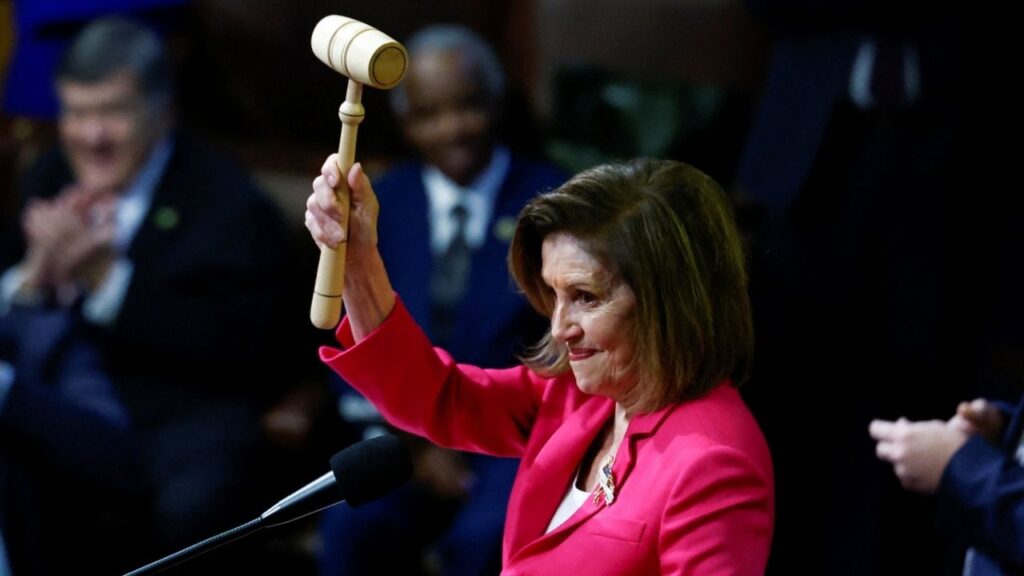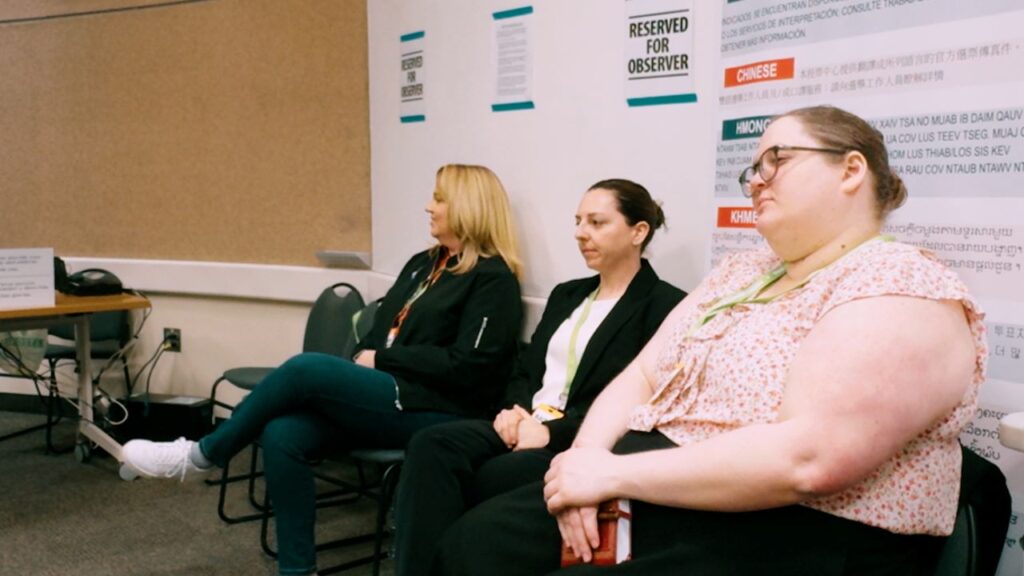Republican vice presidential nominee Sen. JD Vance, R-Ohio, speaks at a campaign event, Thursday, Sept. 5, 2024 in Phoenix. (AP/Matt York)

- Sen. JD Vance vows to eliminate legal immigration programs, including Temporary Protected Status and mass parole under Trump.
- Vance insists on deporting all individuals violating immigration laws, not just those deemed "bad" immigrants.
- Vance's plan could affect 864,000 immigrants currently protected under Temporary Protected Status from 16 countries.
Share
|
Getting your Trinity Audio player ready...
|
PEORIA, Ariz. — Sen. JD Vance of Ohio, former President Donald Trump’s running mate, escalated Trump’s attacks against legal immigration Tuesday, vowing to end programs that authorize hundreds of thousands of immigrants to live and work in the United States.
“What Donald Trump has proposed doing is we’re going to stop doing mass parole. We’re going to stop doing mass grants of Temporary Protected Status,” Vance said at a campaign event in Peoria, Arizona. “Of course, you’re going to have people fleeing from tyranny, but that happens on a case-by-case basis, not by waving the magic government wand.”
Later, in Tucson, Arizona, Vance deflected questions from local reporters about deporting DACA recipients and restarting family separations at the border. Without specifically addressing DACA, which stands for Deferred Action for Childhood Arrivals, Vance said “we also have to deport people, not just the bad people who came into our country, but people who violated the law coming into this country. We’ve got to be willing to deport them.”
Related Story: Vance’s Dominant Debate Performance Shows Why He’s Trump’s Running Mate
Near 864,000 Immigrants Have Legal Residency
About 864,000 immigrants have legal residency through a program known as Temporary Protected Status, which Congress created in 1990 for people fleeing war and other crises in their home countries. The program currently grants legal protection to immigrants from 16 countries, with most coming from Venezuela, El Salvador and Haiti.
This month, Trump had vowed to revoke that legal status for Haitian immigrants, who have been the target of accusations by the former president and Vance — most prominently in Springfield, Ohio. Vance’s remarks Tuesday appeared to widen that pledge, suggesting that all immigrants granted Temporary Protected Status would have to find other methods to stay in the country or face deportation. Immigrants from many of those countries would not have a clear alternative path to temporary protection.
Related Story: VP Debate Takeaways: Vance, Walz Target Top of the Ticket — Not Each Other
A representative for Vance declined to comment when asked about specifics of the plan to end Temporary Protected Status.
Vance also appeared to propose the end of other parole programs that allow hundreds of thousands of immigrants to live in the United States for a short period without a visa or green card. This month, the Biden administration said it would allow one of those programs — for people from Cuba, Venezuela, Haiti and Nicaragua — to lapse, reflecting the political pressure President Joe Biden and Vice President Kamala Harris face on immigration, and the desire to blunt attacks from Republicans on the issue in the final days before the election.
A reporter from Telemundo had asked Vance in Peoria about Trump’s vow to deport Haitians living in the United States under Temporary Protected Status, and if that effort would extend to immigrants from other countries and in other migration programs. Vance again described immigrants in those programs as “illegal immigrants,” even though they are in the country legally, and blamed them for rising costs and other issues.
Related Story: Walz and Vance Go After Each Other’s Running Mates in VP Debate
“What Kamala Harris has done,” Vance said at a factory for military equipment in Peoria, “is she has used programs that are meant to help people who are escaping tyranny, and she’s used it to grant amnesty to millions upon millions of people who have no legal right to be in the country, and that has to stop.”
–
This article originally appeared in The New York Times.
By Chris Cameron
c. 2024 The New York Times Company
RELATED TOPICS:
Categories

Nick Fuentes’ Rise Puts MAGA Movement in a ‘Time of Choosing’

Cowboys Defensive End Marshawn Kneeland Dead at 24

Trump Gets New Review of New York Criminal Hush Money Case
















